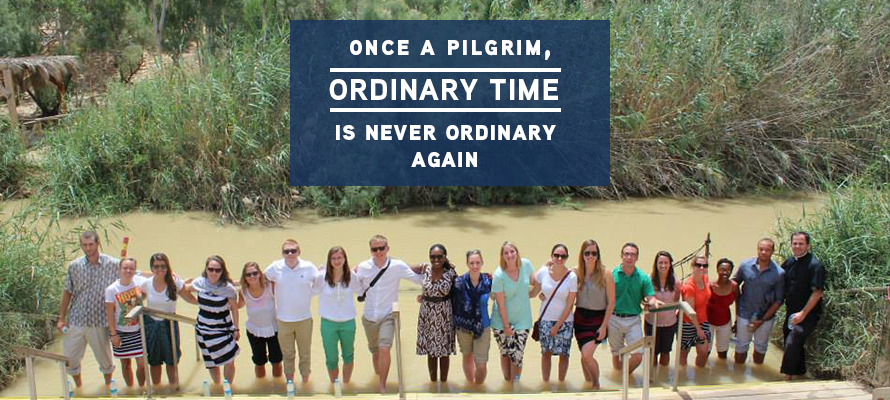
Every pilgrim knows that once you’ve been to the Holy Land, “Ordinary Time” is never ordinary again. You can’t walk in the footsteps of Our Lord and not be affected when you hear the Gospel message.
Ordinary Time, which begins this Sunday, is not called so because it is “not interesting.” The phrase is derived from the Latin word ordinalis, which means “numbers in a series.” It represents the ordered life of the Church and denotes the periods in the liturgical year that do not include the seasons of Advent, Christmas, Lent, and Easter.
In other words, Ordinary Time takes us through the life of Christ, the years in which the Son of God walks among us and transforms our lives. There is nothing "ordinary" about that!
This Sunday, Holy Land pilgrims will be taken back to the Jordan River as the gospel depicts the Baptism of Our Lord (Luke 3:15-16, 21-22). The following week, they’ll recall their own experience in Cana as John recounts Christ’s first miracle, transforming water into wine (John 2:1-11).
Throughout Ordinary Time, pilgrims relive their experiences at the House of Lazarus in Bethany when they hear the story of Mary and Martha (Luke 10:39-42) and the Pool of Bethesda in the Old City of Jerusalem as John shares how Jesus heals a paralytic man (John 5:1-15). They will vividly “see” the sycamore fig that Zacchaeus climbs to catch a glimpse of Jesus in Jericho (Luke 19:1-10), because they’ve touched the bark of the trees that still grow there.
Of course, Advent and Lent completely come to life for the pilgrim, too–but I’ll save that for another time. Suffice it to say that once one has been to the Holy Land, the Gospels are no longer “stories,” but intense experiences in a pilgrim’s faith journey, making these events real and relevant to his or her own life. As we enter this season of Ordinary Time, each of us should recognize that this time of conversion, growth, and contemplation on the mystery of Christ is really quite extraordinary indeed.



